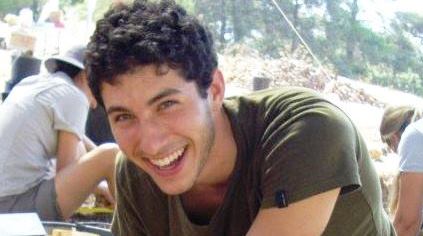
Wayne State University School of Medicine student Alex Green has been awarded a Boren Fellowship from the National Security Education Program to travel to Jordan for a 10-month Arabic language and related research project concerning health care determinants of antimicrobial resistance among Syrian refugees.
Green also was named a 2017 Medical Scholar by the Infectious Disease Society of America. The award will be used to support a domestic research project investigating the microbial populations that are unique to Syrian refugees in metropolitan Detroit and the unique antimicrobial resistance those microbes exhibit.
The Boren Fellowship provides up to $24,000 in support for fully-funded opportunities for United States graduate students to study less-commonly taught languages in world regions critical to U.S. interests. Green, who completed his second year of medical school, will return to the School of Medicine as a third-year student in 2018. In exchange for funding, Boren Fellows commit to working in the federal government for at least one year following graduation.
His mentors on the research project are Professor of Medicine Stephen Lerner, M.D., and Associate Professor of Medicine Teena Chopra, M.D., M.P.H., both with the Department of Internal Medicine's Division of Infectious Diseases.
"I feel positively elated. It is an incredible privilege to have been considered, much less accepted," he said. "Both opportunities are spectacular, and all the more so for the fact that they reinforce each other. If the domestic research is able to meet its goals, the findings may enable us to elucidate what factors are mitigating, exacerbating or outright circumventing the antimicrobial resistance profile of Syrian refugees in Jordan."
In Jordan, he will enroll in intensive coursework on Modern Standard and colloquial Jordanian Arabic. Throughout the research period, Dr. Chopra will mentor him in surveying the clinical practices, attitudes and knowledge gaps of health care workers in Jordan regarding antimicrobial resistance.
Green is grateful to Dr. Chopra, a nationally-recognized expert in antimicrobial resistance who encouraged him to apply for the IDSA grant. "As she informed me when I originally approached her, this research is vitally important and has never been studied before. Without the wonderful guidance of her and her colleagues, none of this would be possible," he said.
Dr. Chopra is corporate medical director of Hospital Epidemiology and Infection Prevention at the Detroit Medical Center.
"This is an outstanding opportunity for both Alex and I to team up and understand the knowledge gaps around antimicrobial resistance patterns amongst Syrian refugees," said Dr. Chopra, who thought of the project after seeing Syrian refugee patients with highly-resistant infections at the DMC.
The goal is to develop an anti-biogram specific to the local population that will form the basis of tailored antibiotic treatment protocols.
"In doing so, the project aims to ensure that resettled refugees receive medical care that is effective and ethical when they enter the clinical setting. This will be done with the help of the IDSA grant," she added.
Green holds an undergraduate degree in International Relations, focused on the Middle East. His interest in the larger Arab world grew from internships with the National Council on U.S-Arab Relations and the League of Arab States Mission in Washington, D.C. He also spent 13 months in Israel-Palestine, "where I became strongly immersed in the Israeli Bedouin community," he said.
What first drew him to the Arabic culture, however, was romanticism.
"As a college student I idolized figures like Saladin, Cyrus the Great, T.E. Lawrence and Gertrude Bell, and grew up in an age when the Arab world gained superlative significance in international affairs," he said. "What I love most, however, is taking those romanticisms abroad and replacing them with their infinitely more complex human counterparts."
The Wayne State University School of Medicine graduates a diverse group of physicians and biomedical scientists who will transform the promise of equal health into a reality for all.